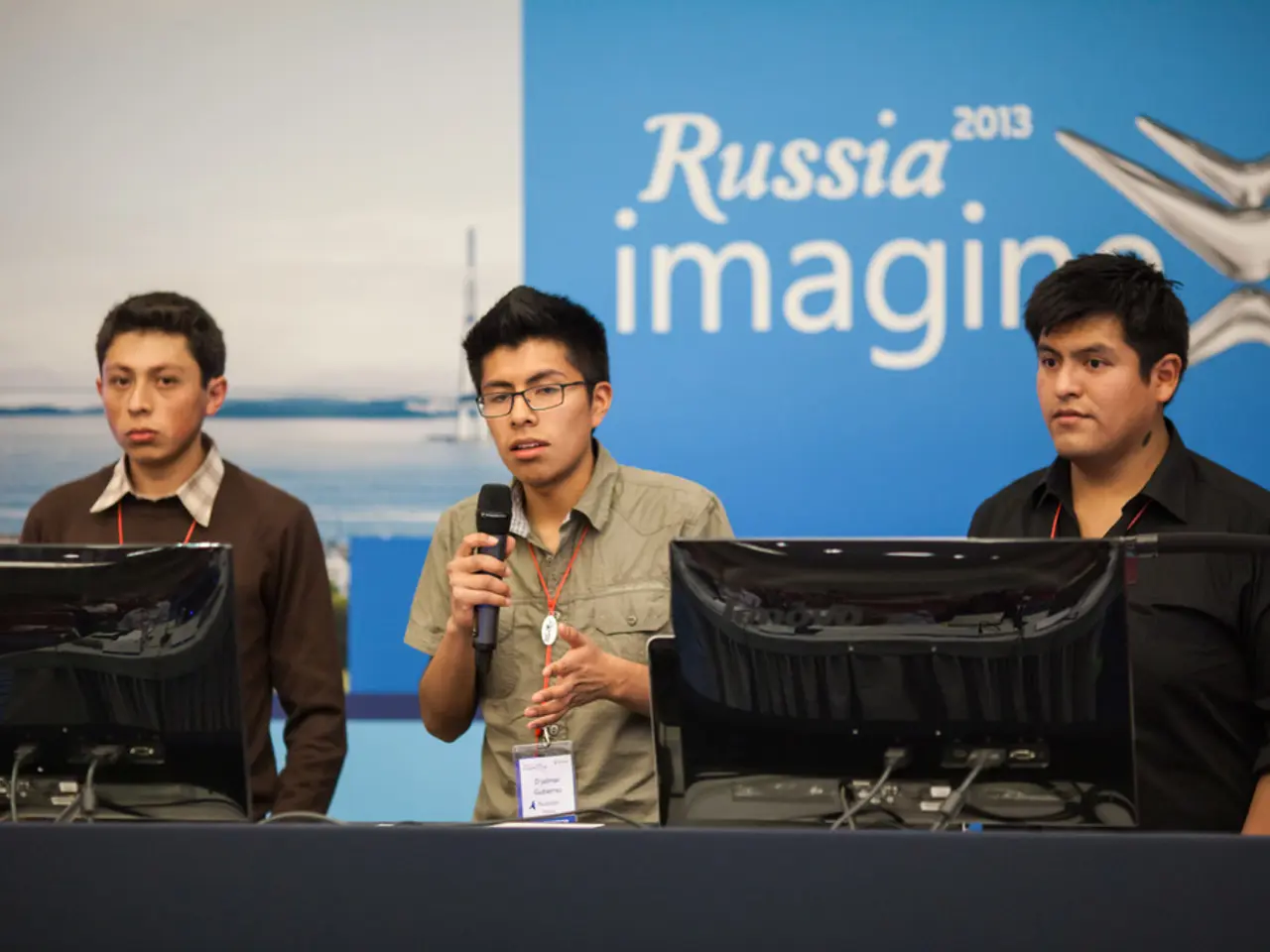European AI struggles extend beyond startup sectors, evident in the examples of Italy, France, and Lithuania.
In the ever-evolving world of artificial intelligence (AI), Europe is witnessing a surge in startup activity. However, the region still trails behind the scale and capital intensity found in Silicon Valley and China.
According to recent data, European AI startups raised approximately €3.04 billion in the first half of 2025, a 61% increase from the same period in 2024 [1]. This growth is accompanied by a surge in investor interest and deal activity. Yet, Europe captures only a smaller share of global AI venture capital than the US and China. Between 2018 and 2023, Europe’s AI investments totaled about €32.5 billion compared to over €120 billion in the US [3].
Germany leads the way in European AI startup funding, surpassing the UK in Q2 2025 with $2.8 billion raised [2]. Italy's AI ecosystem, while active, remains smaller and less prominent compared to Germany and France. However, the country benefits from the overall European push to improve AI skills and infrastructure, as outlined by EU initiatives aiming to close the digital skills gap and enhance AI-related digital infrastructure and education [3][4].
The landscape suggests a steady but slower growth trajectory compared to the explosive expansion and investment seen in Silicon Valley and China [1][2][3]. Yet, some deep tech and specialized AI sectors in Europe show promise.
One such sector is Italy, where companies like Exein, offering integrated cybersecurity solutions for connected devices, are making strides. Exein recently raised 70 million euros in a Series C funding round [8]. The company is leading the DVPS project, funded by the European Union with 29 million euros under Horizon Europe [9]. The DVPS project aims to create a new generation of AI models capable of learning multimodally, integrating text, images, audio, and sensory inputs [5].
Exein believes that Italy's strong mechatronics skills make it a suitable candidate for AI applications in the industrial sector [10]. The company has been active in AI since 2019 and focuses on model miniaturization due to energy costs and limited international adoption of the Italian language [11].
The European Commission has announced a plan to mobilize 200 billion euros in AI investments [6]. Part of this plan includes a new 20 billion European fund for gigafactories [7]. The Commission aims to address Europe's lag in the digital revolution and attract and retain top AI talent via visa reforms, fellowships, and academic-industry partnerships [3][4].
Despite these efforts, Europe has few tech protagonists compared to its citizens' use of technology [4]. The question of entrepreneurial activity in Europe in relation to AI remains a topic of discussion. Notable companies in this field include OpenAI and Google [9].
As Europe continues to invest in AI, it is clear that the region is committed to closing the gap with Silicon Valley and China. With initiatives like the DVPS project and the European Commission's investment plan, Europe's AI startup scene is poised for continued growth.
- The surge in European AI startups' funding, such as the €70 million raised by Italy's Exein in a Series C funding round, indicates a growing international interest in the use of artificial intelligence technology in less conventional sectors, like Italy's industrial sector.
- In the pursuit of closing the global AI venture capital gap with regions like Silicon Valley and China, the European Commission is planning to invest €200 billion, which includes a €20 billion European fund for gigafactories, with the aim of fostering the growth of AI startups across the continent.




